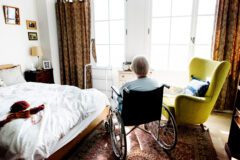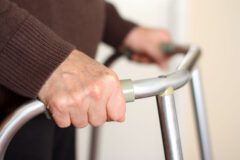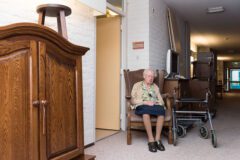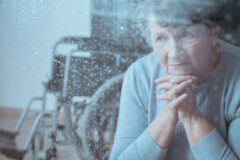Can You Sue a Nursing Home for a COVID-19 Infection?
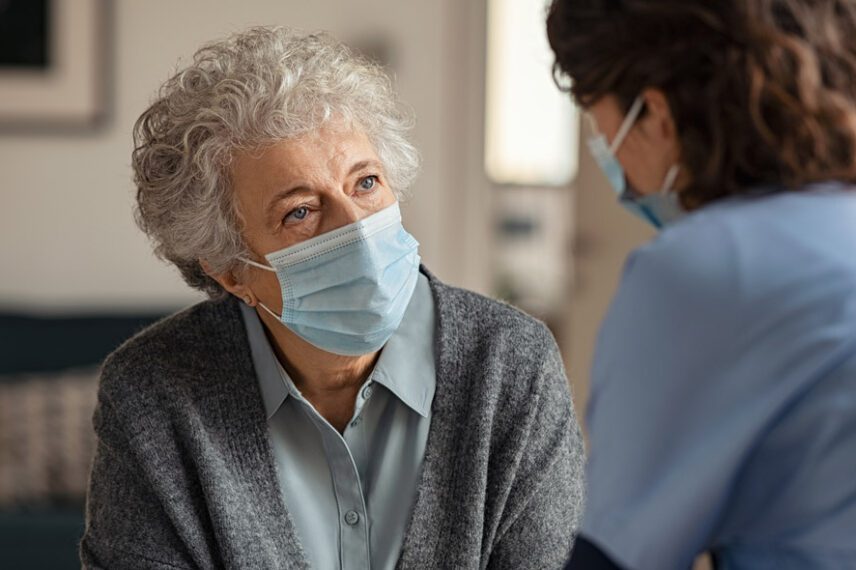
Before the COVID-19 pandemic, suing a nursing home facility for negligent treatment resulting in injury or death was a fairly uncomplicated matter. However, since the start of the pandemic, several states have created laws that protect nursing home facilities against liability for viral outbreaks.
So, when are you able to file a nursing home wrongful death claim if your loved one passed away from COVID-19? Let’s take a closer look at some of the most common policies regarding the virus.
COVID-19 Cases in Nursing Homes
The COVID-19 pandemic hit residents of nursing homes hard in 2020, with experts predicting approximately one-third of all COVID-19 deaths occurred from this subset of the population. While many lower-rated Medicare nursing home facilities faced the highest COVID-related mortality rates during the first wave of the pandemic, many higher-quality nursing homes were able to prevent these high mortality rates during the initial stages of the pandemic, suggesting that they quickly adapted to the start of the pandemic more effectively than lower-quality homes.
Researchers also found that over time, the overall non-COVID-19-related mortality rates in higher-quality homes increased, equating to relatively similar mortality rates between lower-rated and higher-rated nursing homes during much of the pandemic.
While high-quality nursing homes had more rigorous isolation procedures, researchers theorized that this led to increased levels of loneliness, depression, and hopelessness among residents, which led to significant cognitive and physical decline and, ultimately, higher mortality rates. Lower-rated facilities with poorer COVID-19 protocols had higher rates of COVID-related deaths but fewer non-COVID-related deaths.
The Correlation Between the Pandemic and Nursing Home Negligence
Because COVID-19 is typically spread by asymptomatic people or those unaware they are in the incubation stage of the virus, it is a highly contagious virus that proves incredibly difficult to contain and especially deadly amongst those with weakened immune systems, such as the elderly.
As many nursing homes tried to control the spread of COVID-19, thousands of families still suffered the loss of a family member due to the deadly virus’ effects. Likewise, countless other families faced the loss of a loved one due to the psychologically negligent conditions created to prevent the spread of COVID in their loved one’s nursing home.
Although many states created laws to protect nursing home facilities from rampant lawsuits surrounding the virus, this does not mean that filing a lawsuit isn’t possible. In fact, legal compensation is entirely possible and worth pursuing in wrongful death cases where substandard medical care and negligence were the primary cause of death.
What is a Wrongful Death Suit?
A wrongful death lawsuit grants family members the right to compensation after the death of a loved one due to another person or facility’s negligence. Because the victim is no longer alive to seek compensation, a representative files the suit on their behalf. Recoverable damages in a wrongful death lawsuit include:
- Funeral Costs
- Burial Expenses
- Lost Wages
- Lost benefits
- Emotional Distress
- Loss of Parental Support
Negligence in Relationship to a Wrongful Death Lawsuit
A wrongful death lawsuit must demonstrate that the victim died due to another person’s negligent actions. In the case of a nursing home patient’s death, a few elements would need to be demonstrated to prove negligence, including:
- That the worker or facility breached the care of duty they owed to the patient
- That the worker failed to provide a standard of care that a reasonable person would have provided
- That the worker or facility was in violation of laws or procedures
For example, if a nurse failed to adjust a patient’s bed position every three hours per the doctor’s orders and the patient developed bed sores that led to a secondary infection causing their death, then they may be held liable in a wrongful death lawsuit.
Nursing Home Neglect During COVID-19
While nursing home neglect and abuse were still prevalent before the pandemic happened, COVID-19 no doubt exacerbated these issues. With more stringent COVID-19 protocols, many patients suffered from emotional and physical neglect during the pandemic. To prevent the spread of the virus, many negligent nursing home staff members avoided patient contact more frequently, failed to provide standard levels of social attention, isolated patients from loved ones, and repeatedly failed to recognize the symptoms of other illnesses.
Likewise, understaffing issues during the pandemic may have caused staff to be overworked, burnt out, and unable to keep up with the care demands of nursing home patients.
During COVID-19 outbreaks in nursing homes, staff may also have been unable to follow proper infection control protocol resulting in a heightened risk to patients. This may lead to negligent practices such as:
- Being understaffed
- Ignoring patients’ requests for medical attention or protective equipment (PPE)
- Improper usage of PPE
- Symptomatic staff members showing up to work
- Delayed referral to emergency hospitals
- Failure to sanitize and disinfect equipment properly
- Failing to inform family members of their loved one’s medical status
Immunity Laws in South Carolina for COVID-19-Related Nursing Home Deaths
As the pandemic heightened, the American Medical Association and the Medical Professional Liability Association issued a statement asking for broad immunity protection for legal claims against hospitals and healthcare providers, such as nursing home facilities. This resulted in the Secretary of Health and Human Services asking states to issue civil immunity against any medical liability for COVID-19-related claims through the CARES Act. This act created laws designed to limit the amount families of COVID-19 victims could recover in nursing home negligence cases.
In South Carolina, lawmakers introduced the COVID-19 Liability Safe Harbor Act in 2021, which granted businesses such as nursing homes broad immunity from lawsuits related to COVID-19 deaths. This law, however, did not provide immunity from COVID deaths caused by a facility’s failure to enact the standard precautions against the virus and was lifted 180 days after the state of emergency was raised on December 4, 2021.
Since the law was lifted, nursing homes are still expected to provide a high level of care but must also hold a burden of responsibility to protect their patients from the virus. Currently, a nursing home can be held liable for a resident’s death from COVID-19 if it was “grossly negligent, reckless, intentional, or willful” or if the facility failed to follow public health guidelines.
South Carolina’s Statute of Limitations
If your loved one died of COVID-19 during the height of the pandemic, it’s critical to understand that in order to file a claim, their death must have happened within South Carolina’s statute of limitations, which is three years from the time of injury to the time you file a claim. If your case is not filed within this time period, the court will likely refuse to hear your case at all.
Final Thoughts
From 5-star rated Medicare nursing home facilities to 2 or 3-star rated facilities, nursing home residents were forced to bear the burden of COVID-19, with many suffering COVID-related deaths due to understaffing and negligence. Even high-end nursing home facility residents were at risk from non-COVID-19 related deaths due to emotionally and physically negligent conditions because of stringent COVID protocols.
While not every COVID-19-related death may be eligible for legal compensation, if your loved one’s death resulted from the negligent and careless actions of a nursing home facility, it’s possible to seek recovery in a wrongful death lawsuit.
The first step, in any case, is to seek legal counsel as soon as possible to ensure your claim falls within South Carolina’s three-year statute of limitations. An experienced wrongful death attorney will evaluate your case to ensure you have the grounds for further legal action. An injury attorney will also help you recover any economic and non-economic damages you may be eligible to receive due to your loved one’s death.

